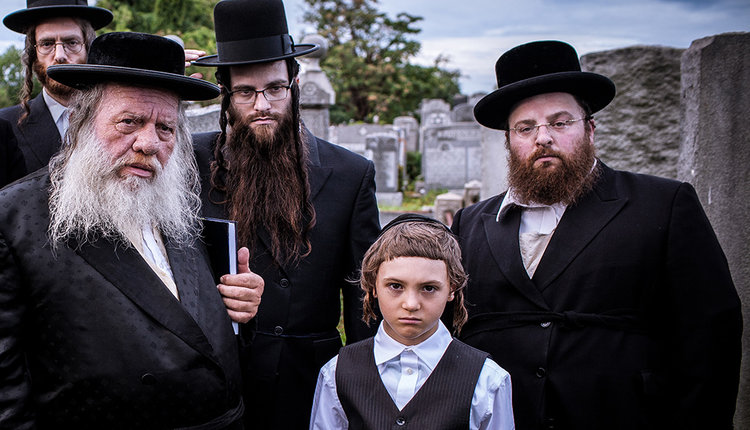Film Review | Menashe is an Isolating Glance into Orthodoxy
There’s a moment in Menashe where the titular character and his ten-year-old son Rieven (Ruben Niborski) are attempting to hang a picture. It hangs crooked for a moment before they fix it. The same can be said of the film’s story. Everything hangs crooked in a cramped frame but we never see the results fixed and Joshua Z. Weinstein’s direction complements this lonely look at Hasidic Judaism.
Menashe (Menashe Lustig) is an Orthodox Jewish widower living in Brooklyn. His son has been living apart from him as dictated by their local Rabbi who declares that Rieven should not be raised in a single parent home according to his reading of the Torah. Rieven lives with his sanctimonious uncle Eizik (Yoel Weisshaus) while Menashe seeks a woman to replace the wife he never loved all while he barely scrapes by in his shitty kosher grocery store job.
Few people outside of the Orthodox Jewish community know anything about it. In a world where one’s religion forms their life it can be hard to comprehend. Menashe renders these concerns obsolete as the ceremony and tradition are mostly bells and whistles that drive a deeply human and touching story about grief and parenthood. Almost all of the characters in the film speak Yiddish, the primary Orthodox language, and director Joshua Z. Weinstein shot it entirely in Borough Park, Brooklyn one of the biggest Orthodox Jewish areas outside of Israel. All of this contributes to a feeling of intense authenticity and makes for an interesting take on a story that’s been done many, many times before.

Torah study sessions, ritual baths, the fur hats and big coats as well as the braided locks are all present within Menashe. It’s exactly as you’d expect of an Orthodox Jewish community though modernity is always encroaching. At one point a character offhandedly exclaims “A Hasid working for Amazon?” It’s moments like these that serve to illustrate how closed off the Orthodox community is from the secular world. Menashe’s only true contact with it is when he talks to his Hispanic co-workers and it is in these interactions as well as within the diegetic community that reveals how isolated Menashe is.
Loosely based on the lead actor’s life Menashe is a sad tale that is ultimately universal. Within every community there are those who thrive and those who fail. Just as Eizik is succeeding in real estate Menashe is suffering in his dead-end job. He lives alone in a cramped apartment and can’t seem to get anything to go right for him. Even as the film ends Menashe cuts a tragic figure albeit a hulking one. According to Jewish teaching he is a man without a home and thus is not entitled to respect from his community or even his own family. A fact highlighted by Weinstein’s constant use of shaky close-ups.
This is a story we’ve all seen or read before. The Orthodox Jewish take on it adds an interesting angle but it’s the performances of Lustig and Niborski that make this a film worth seeing. By turns interesting and heartbreaking Menashe gives outside audiences a rare view of a community and it’s people that, despite adversity, continue to grow and thrive.

